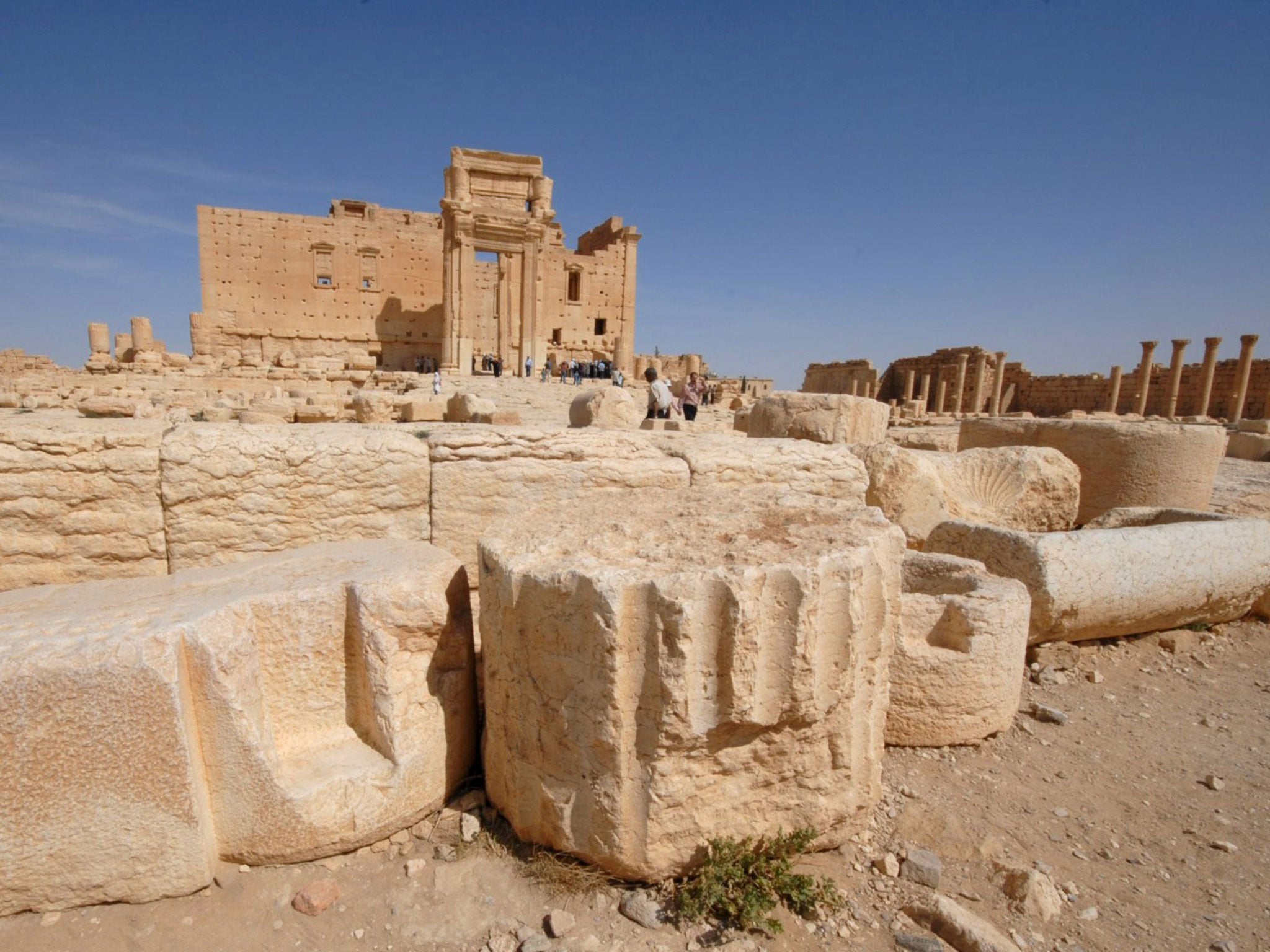The expulsion of Isis from Palmyra is good news
The world owes it to the Syrian people to salvage as much as possible of the historic site 130 miles from Damascus

Whatever we think of Bashar al-Assad’s blood-stained regime in Syria, it is still welcome that its forces appear to have driven the Isis fanatics out of the ancient desert city of Palmyra.
When the ultra-Islamists captured this city last May, historians, lovers of culture, Syrian patriots and friends of civilisation the world over were plunged into dread and despair. In Palmyra, Isis not only obtained a strategic site, 130 miles northeast of Damascus, but a treasure trove of ancient artefacts, temples and palaces that bore witness to millennia of fruitful interplay between the cultures and faiths of east and west. Those who knew Palmyra and understood its deeper significance, as so much more than a museum or “ruin”, well understood that Isis would want to wreak revenge on it precisely for those reasons.
So it has unfortunately proved. Western reporters have yet to be allowed back into Palmyra where Isis fighters still reportedly hold out on the outskirts. But photographs taken from the air long ago confirmed that the magnificent 1st-century Temple of Bel is now dust and rubble. The equally ancient and wondrous Temple of Baalshamin, dug out of the sands in an almost pristine condition in the 1940s, has met the same fate.
What Isis did not destroy in Palmyra on the grounds of idolatry, it wrecked for hard cash. Alongside lost temples, numerous ancient tombs appear to have been plundered and razed so that the stones and reliefs could be sold on the illegal antiquities market.
Isis is not the first force in history to declare a form of war on history because of what it symbolises. The reason why so little medieval art and sculpture survives in modern Britain is because our own home-grown religious fanatics, the Puritans, obliterated almost all of it in the 16th and 17th centuries, employing the same argument that Isis uses today: idolatry. Few dared, as Shakespeare did discretely, to mourn the despoliation of ancient monasteries and churches and their conversion into “bare ruin’d choirs”.
Much more recently, communist revolutionaries inflicted incalculable damage on the religious art and architecture of Russia and China. More recently still, the Taliban robbed Afghanistan and the world of the precious Bamyan statues. Those vast, mysterious symbols of a long dead Buddhist civilisation were targeted by Moghul emperors in the Middle Ages and by Persians in the 18th century and survived them all - until the Taliban dynamited them in 2001.
We wait to see what remains of Palmyra, but, presuming Assad forces complete their recapture of the city, the rest of the world should not hold back from offering to help restore what is left. The regime will naturally make maximum use of this for its own propaganda purposes - but that should not deter anyone. It is tragic that Dr Khaled al-Assad, the head of antiquities at Palmyra for 50 years, will not be around to offer his invaluable contribution. Isis forces beheaded him last August for the crime of managing a collection of “idols”. The world owes it to him and to people like him, Syrians who faithfully guarded their country’s treasures for decades, to salvage as much as possible.
The defeat of Isis in Palmyra, meanwhile, forms part of a wider pushback that has substantially shrunk the "Islamic state” over the past year. In northern Syria, Kurdish forces have overrun a long belt of territory including the town of Kobani along the Turkish border. In Iraq, government forces have ejected Isis from the key city of Ramadi and threaten to retake Mosul. Whether the much talked-about assault on Mosul gets far is a moot question, given the Iraqi army’s unreliability, but there is no doubt that if Isis did lose that city, it would be a huge blow.
It may be premature at this stage to talk about completely defeating Isis, but containing and humiliating these brutes is a start.

Join our commenting forum
Join thought-provoking conversations, follow other Independent readers and see their replies